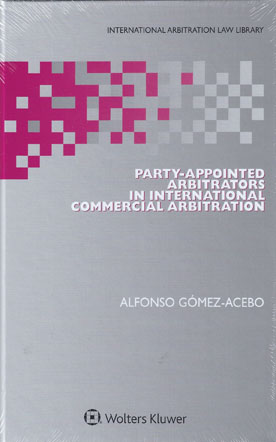
Party-Appointed Arbitrators in International Commercial Arbitration presents a detailed examination, long overdue, of how the agreement of disputing parties to each make a unilateral agreed-upon appointment of an arbitrator affects the actual process of arbitration.
The topic of unilateral nominations itself is of general interest to everyone in the arbitration community. Three-member arbitral tribunals with two party-appointed arbitrators are the most frequent tribunals in international arbitration and, therefore, virtually all arbitration practitioners are often confronted with questions about the system of unilateral nominations.
This book takes a step forward by offering a comprehensive study of the system of party-appointed arbitrators in international commercial arbitration. The study takes a three-pronged approach: historical analysis of unilateral nominations, a theoretical critical assessment of how the system of unilateral nominations currently works and a comparative empirical study of challenges of arbitrators depending on the method of appointment.
What’s in this book
This book’s central critical assessment addresses several issues including:-
The book ends with some suggestions on how the system of unilateral appointments could be improved, namely in order to increase the trust of each party in the arbitrator appointed by the other party and to allow an accurate match between what arbitration end-users may want from party-appointed arbitrators and what they ultimately get.
How this will help you
Party-Appointed Arbitrators in International Commercial Arbitration fills a gap in arbitration literature. Much has been written about party-appointed arbitrators; most articles are focused on particular aspects of the system of unilateral nominations, but there is no comprehensive or monographic study on unilateral appointments in the market such as this work.
For both its thorough and well-informed analysis and its sound recommendations in relation to party-appointed arbitrators, this book is sure to be welcomed by professionals in the arbitral community worldwide, as well as by arbitration law academics.